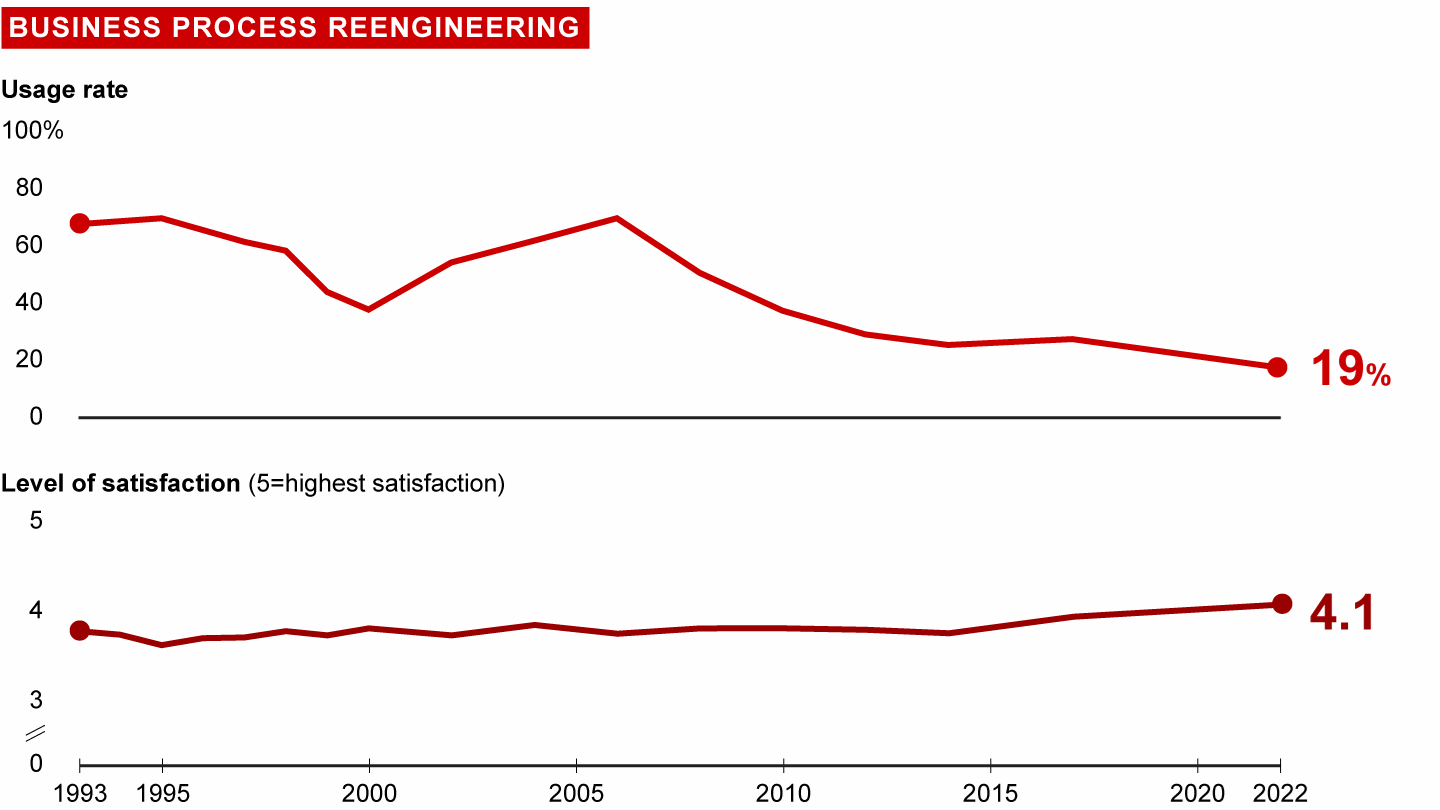Management Tools
What Is Business Process Reengineering?
Business Process Reengineering is the radical redesign of business processes to achieve dramatic improvements in productivity, cycle times, quality, and employee and customer satisfaction. Companies start by assessing what work needs to be done to deliver customer value. Techniques such as process mining (the analysis of information systems event logs) can help discover, monitor, and improve processes. Then they decide how to do the work—or if it should be done at all. Rethinking the roles of third parties or outsourcing is also a crucial component of Business Process Reengineering.
Usage and satisfaction among survey respondents


How Is Business Process Reengineering Implemented?
Business Process Reengineering is a dramatic change initiative that contains seven major steps:
- Refocusing company values on customer needs and eliminating low-value work
- Simplifying and standardizing overly complex work, and automating repetitive work
- Enabling processes with modern systems and data
- Locating work in the most efficient and effective environment
- Reorganizing a business into cross-functional teams with end-to-end responsibility for a process
- Rethinking basic organizational and people issues
- Determining appropriate roles for third parties or outsourcers, focusing on where they truly add value
Related Topics
What Are the Common Uses for Business Process Reengineering?
Companies use Business Process Reengineering to improve the performance of key processes that affect customers by:
- Reducing costs and cycle times by eliminating unproductive activities and locating work in the most efficient and effective environment
- Reorganizing by teams to decrease the need for management layers, accelerate information flows, and eliminate errors and rework caused by multiple handoffs.
- Improving quality by standardizing and automating work to reduce errors and focus workers on higher-value activities. It also reduces the fragmentation of work and establishes clear ownership of processes.

Management Tools & Trends 2023
On the 30th anniversary of our survey, managers seem surprisingly upbeat.